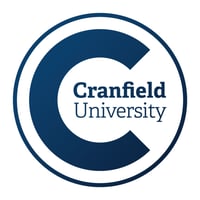
Most of us want to come into work and do a good job and the stakes are high when it comes to aircraft accident investigation. Any sensible recruitment process matches a person to a job and a job to a person. If I found myself being asked to prepare a meal for 400, I would be deeply worried. The source of my worry could derive from a number of different places. I have never been trained to cook. My own efforts are pleasing enough at home but in a professional context? I have no experience of preparing a menu for 400 people to a time, to a budget. Clearly, I lack the knowledge and skills to be a chef. Having watched my fair share of MasterChef: The Professionals episodes, I am also convinced that I lack the necessary abilities that create excellence in this job as well!
Doing well at work
The idea of any candidate having the necessary knowledge, skills and abilities to do a job is well known and, while challenging to do well, is applied in recruitment. So long as we know what the person is required to do and how they are required to do it, we can make a list and use this list as the basis for an application form or an interview. We can test for knowledge or use qualifications and experience as evidence. For example, in accident investigation technical knowledge and qualifications can be examined together with operational experience. We can also look for evidence of abilities during the interview or again, by asking about experience or presenting scenarios.
But this is not the whole story.
Indeed, anecdotally, selection is becoming harder and harder. One area often in the news is the way in which UK universities select their students: if most students present with top grades at A-level, selection can become very demanding indeed. On paper, every student has the knowledge, skills and abilities (KSAs) to succeed, assuming we select based on A-level grades. With graduate recruitment we have seen the application of psychometric testing and work assessments; degree classification alone is insufficient to differentiate an applicant. Something else is needed.
People perform in different ways at work. There can be variation between people in a role who are not clearly differentiated by KSAs. In professional roles such as accident investigation it can be difficult to articulate, let alone reward or train, what differentiates the good from the great, and how to transition the good to the great
Doing better at work
It was a discussion that centred on this topic that inspired the research. We knew that accident investigators know a lot about aviation. We also knew that, in the UK, continual professional development is a key demand of investigators. Through talking to investigators who came onto our courses in accident investigation, we noticed that some investigators were held in high esteem by their colleagues. The question "why" was more difficult to answer. Answers tended to be non-specific: good to work with, gets on with the job. It seemed that superlative technical knowledge, skills and ability was assumed. This X-factor was more difficult to pin down.
Our observation is not new. In 2004, Ken Smart, former chief inspector of the UK Air Accidents Investigation Branch (AAIB), wrote in the Journal of Hazardous Materials:
"In my experience it is a relatively straightforward process to establish a candidate’s professional qualifications and experience. Far more difficult is to get a good assessment of a candidate's personal qualities."
We felt that the twelve-year interval between this article and our observation merited research. Picking up on the theme of competencies, a methodology was deployed to generate a competency framework for air accident investigators. We interviewed investigators and, using grounded theory, built a competency framework which contained those qualities that could modify performance: transitioning the good into the great. We view competencies as performance shaping factors of a job or role, modifying performance on a task. Get the competencies right and performance can be elevated above and beyond someone else with an equal level of technical knowledge and skill. High levels of these competencies could be trained or used to select candidates for roles. In an ideal world you could select based on competencies.
In our centre, we educate investigators using high fidelity simulations. We will be using this competency framework and the associated analysis of investigator's tasks to frame and model learning.
